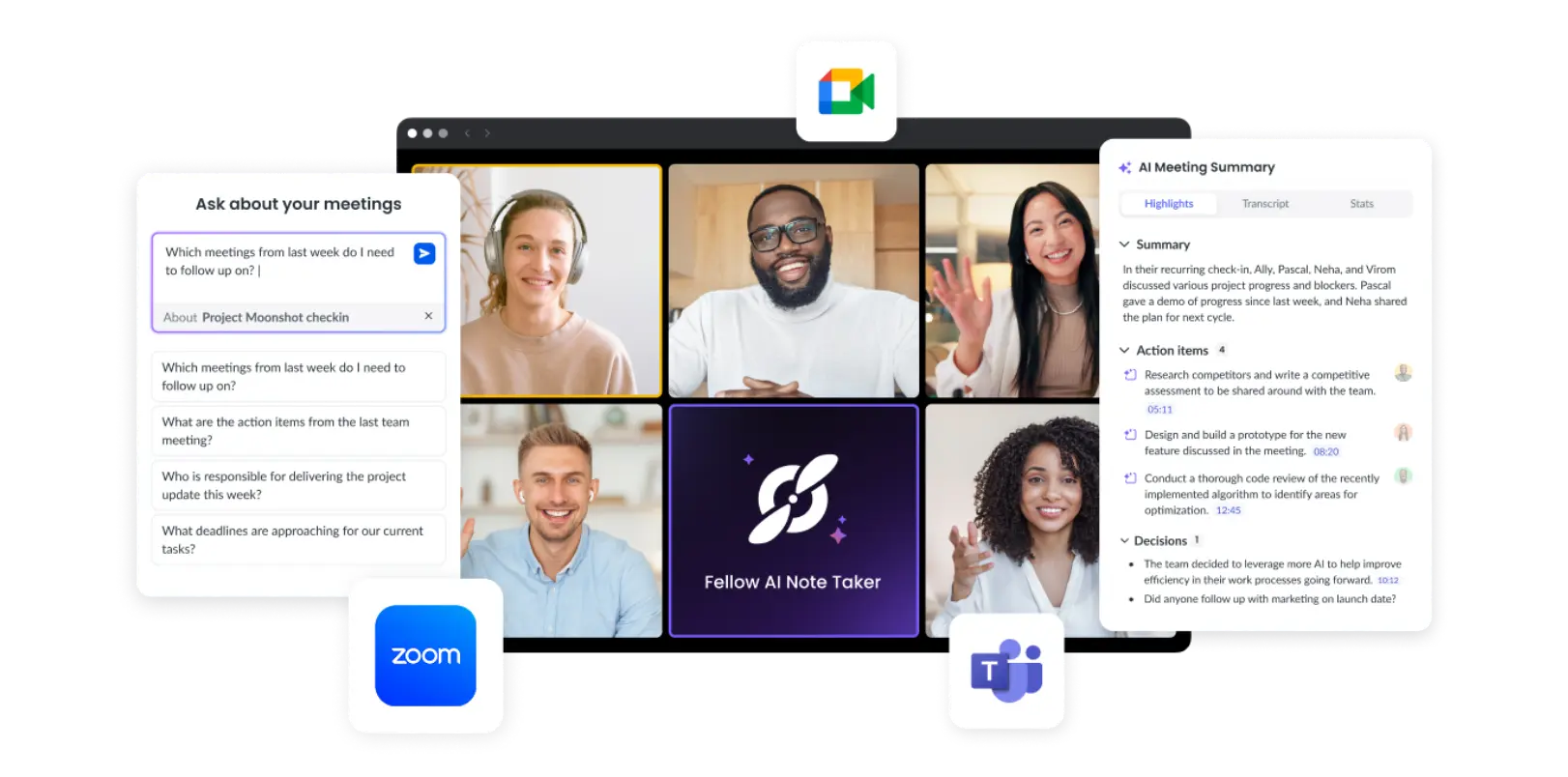80+ Free meeting agenda templates - curated by Fellow.app
Streamline your meetings with our collection of free meeting templates. Use them effortlessly in Fellow, the all-in-one meeting management platform for fewer and smarter meetings, powered by AI and seamless integrations.

Meeting agenda template FAQs
What should be included in a meeting agenda?

- Virtual conference or physical location details
- Attendees (including mandatory and optional attendees)
- The meeting goal or objective
- A list of agenda topics in prioritized orderIndicate whether agenda items require a discussion
- Inform members on how to prepare for the meeting
- Leave a space at the end for action items
What do these agenda templates look like when applied?

All of the free templates on this page are available in for use in Fellow (meeting management app) or they can be copied into Google Docs or Word.
What are common agenda items for a meeting?

- Updates. Individuals or teams briefly share progress, obstacles, and achievements
- Data review. Look at trends in key metrics and results measured from initiatives
- Positive highlights. Big wins and milestones recently accomplished
- News. New information that has surfaced including customer feedback, market influences, and industry news
- Decisions. Topics for discussion where the group should decide on a path forward
- Main takeaways. At the end of the meeting, review major decisions that were made
- Action items. Assign responsibility for each agreed-upon task to one person
How do you create a meeting agenda?

- Create the agenda in advance
- Identify meeting goals and state them clearly
- Provide the right level of detail depending on whether the meeting is formal or informal
- Use a template like the ones in our library for common/recurring meetings
- Share the agenda with all attendees before the meeting (preferably at least 1 day in advance)
- Read: How to create effective meeting agendas for productive meetings
How do you take minutes in a meeting template?

- Maximize productivity with a designated note-taker
- Follow the agenda and fill in notes along the way next to each agenda item
- Do not include information that is implied by the agenda (e.g. Under ‘Updates’ do not write “An update was given”)
- Always note any decisions made
- Assign each action item to a directly responsible individual
What makes a good meeting agenda?

Good meeting agendas promote engagement, alignment, and accountability. The goal of an agenda is to prepare participants for what is happening at the meeting. The level of detail required will depend on whether the meeting is formal or informal and what the topics are. Learn how to create effective meeting agendas.
Who should prepare the agenda for the meeting?

Everyone attending the meeting. The best meeting agendas are collaborative, allowing all attendees to contribute to it. This allows attendees to enter the meeting prepared, and having their objectives met. Research shows it also leads to shorter, more engaging meetings.

Got something to contribute?
Become a contributor, and add your unique take on these topics to our website.
Become a contributor.png)




.png)




.png)













